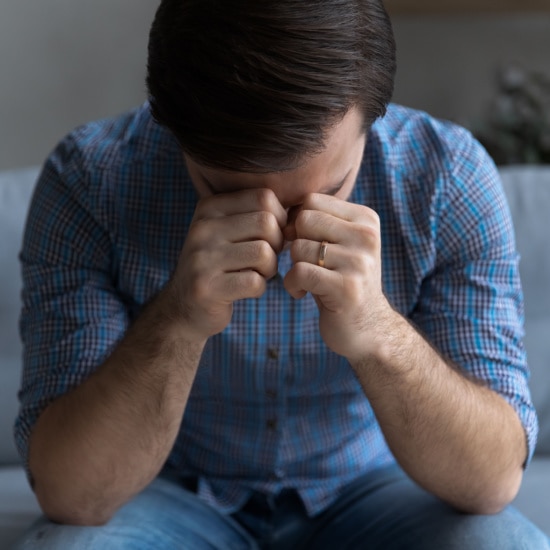15% off £25 OR 20% off £35
Code:OFFER
UK gut health report 2023

Got tummy troubles? You’re not alone – find out how the UK experiences gut health and how to break the “poo taboo”.
Summary
1What exactly is gut health?
Although you’d usually think of your stomach, gut health includes your entire gastrointestinal (GI) tract. It starts at your mouth and is...
2Advice on breaking the stigma
If you’re embarrassed about your gut health, it’s more than likely you’ve skipped the friends’ hotel getaway (complete with en-suite), or opted for...
3Where to get gut health advice
Discuss your symptoms with a GP. It can sometimes feel difficult to talk about, that’s why we’re on a mission to break the taboo around poo...
Bums, bloating, and bowels: it's not the sort of thing you bring up at the dinner table.
But when is the right time? Almost 60% of us shy away from talking about our gut health.
Not only could this keep us enduring uncomfortable symptoms, but it could be dangerous for our health. The more we know, the more courage we’ll have to speak up when things don’t feel right.
But maybe you’re not ready to broach it with your mum or your next-door neighbour just yet.
Thankfully, we’ve taken the first step, surveying the nation to find out just how common our tummy troubles are.
What exactly is gut health?
Although you’d usually think of your stomach, gut health includes your entire gastrointestinal (GI) tract.
It starts at your mouth and is made up of your oesophagus, stomach, small and large intestines, rectum, and anus.
Most of us experience some discomfort in these areas at some point, and it’s not necessarily something to worry about. However, frequent symptoms might be a sign of poor gut health.

How we’re feeling...
58% of us have experienced gut health problems, with 45% of those saying their issues are chronic (lasting 3 months or more).
Bloating and gas are the most common symptoms, with over half of us (51%) experiencing them.
30% reported acid reflux as part of their gut health symptoms.
Find yourself stuck on the loo? You’re not alone; 33% of respondents have trouble with constipation and 28% experience diarrhoea.
...and what’s causing it
We can have poor gut health for any number of reasons. Genetics, pre-existing conditions, and lifestyle factors can all come into it.
Luckily, these are factors that we can work on over time. Improving your sleep hygiene and following a balanced diet can help improve the goings-on in your gut.

But it’s not necessarily a quick or easy fix: 30% surveyed said their gut health has deteriorated over the last year, and 39% said that the cost-of-living crisis played a part in their digestive health. That might mean being less able to afford healthy food, or stress-related changes in sleep, eating, or work habits.
So, what next?
It looks like having gut health problems could actually put you in the majority. So why aren’t we talking about it?
For many, it’s simply an unspoken part of the day. 26% of the people we asked said they choose to ignore their declining digestive health.

Although it’s potentially embarrassing to bring up, it’s not something we can ignore. Sometimes, gut problems can be a sign of other health conditions.
Even if there’s nothing serious, your digestive health is linked to more parts of life than you might realise.
How it’s affecting us
So, we know some of the reasons behind our gut health problems. But what do we do to stop them from happening again and again?
41% of respondents said they find it difficult to break the cycle of bad gut health habits. And many of us simply don’t know what to do. 32% said they don’t know the root of their problem.
That’s why education is key! Even a quick chat or a 10-minute article (hello) can help us better understand our bodies.
Advice on breaking the stigma
If you’re embarrassed about your gut health, it’s more than likely you’ve skipped the friends’ hotel getaway (complete with en-suite), or opted for something safe but dull at a restaurant.
Life’s too short! The stats show that so many of us experience it – so here are a few ways to start the conversation with your loved ones.
It doesn’t have to be a sit-down affair, but choosing a moment where you have time and you’re somewhere calm could help keep you at ease.
Use the terms that make you feel comfortable; don’t feel you have to be polite or overly scientific.
Ideally, we’d all feel safe speaking openly about our gut health. But there might be situations where you want to be a little more vague.
“Stomach troubles” or even just “a medical issue” will suffice if you don’t fancy sharing the details.
While you can acknowledge if it’s embarrassing for you, there’s nothing to be sorry about.
You might want to express that you’re upset about some of the consequences, though. Again, there’s nothing to apologise for!
Try: “I hope you understand if I... have to leave early/don’t finish my meal/disappear”.
Who knows, your loved one may well be part of the 58% and could do with a reassuring chat – or they might have their own digestive disclaimers to share.
Where to get gut health advice
While a chat with family and friends is a great step in tackling the stigma, it’s also important to get medical advice if you need it.
Hopefully, you now know that gut health issues are much more common than you might think.
They’re not always a sign of something more serious, but it’s a good idea to discuss your symptoms with your GP to rule anything out.
It can sometimes feel difficult to talk about and get the help you need. That’s why we’re on a mission to break the taboo around poo. Whatever your tummy trouble, we’re here to listen.
You can book a free, 15-minute wellness consultation, with one of our qualified experts for personalised and private advice. Or why not pop in store today for a chat?
Listen to your gut feeling with the help of Holland & Barrett
We’ve all been there. Bloating, constipation or diarrhoea. Symptoms like these can sometimes make you feel like something isn’t quite right, but the stigma around poo means we’re often too embarrassed to talk about it.




















